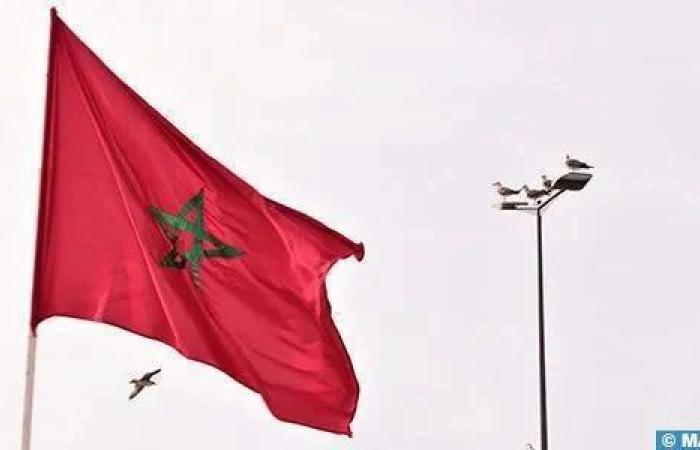Tuesday, June 18, 2024 at 1:40 p.m.
Rabat – The celebration of the International Day Against Hate Speech is an opportunity to highlight the avant-garde role of the Kingdom of Morocco in the permanent fight against all forms of racial and religious discrimination and the strengthening of interfaith dialogue. and intercultural, and promoting education based on inclusion, non-discrimination and peace.
The Day, celebrated on June 18 each year, has particular symbolism for Morocco, because it was on its initiative that it was proclaimed for the first time by the United Nations in July 2021, dedicating the Kingdom for its rich and deep civilizational history, marked by a long tradition of peaceful coexistence and mutual respect between religious and ethnic communities.
Indeed, in a context increasingly impacted by the rise of hate speech in several regions of the world and acts of stigmatization of migrants, refugees and minorities, it is important to highlight the stages where the Kingdom is is illustrated to protect minorities and promote the values of peace and coexistence.
This is how Morocco has worked to promote the fight against racial discrimination and hate speech at the national and international levels, with the promulgation of the 2011 Constitution, which makes, in its preamble, a prerequisite essential for religious and cultural coexistence and strengthens the legislative and institutional framework to promote mutual acceptance, recognition and respect, while banishing stereotypes and hatred.
The Kingdom has also consolidated its legislative and institutional framework to launch, in 2014, a humane, holistic and pragmatic migration and asylum policy, having provided a legal framework guaranteeing migrants of all origins their fundamental rights.
Morocco has also committed to the effort to combat hate speech by completely revising its education system, with the introduction of the notions of altruism and religious diversity in all general education courses, including the reform of religious educational institutions such as Al Qaraouiyine and Dar Al Hadith Al Hassania universities, as well as all Islamic educational programs.
The Mohammed VI Institute for the Training of Imams, Morchidines and Morchidates was created in 2014 and has distinguished itself by providing practical and theoretical training in Sharia, as well as a range of humanist disciplines including imams and religious preachers need to assimilate the context in which they operate.
Morocco has also contributed greatly to international initiatives aimed at combating hate speech. This is in the sense that the Deputy Secretary-General of the UN, Alice Wairimu Nderitu, qualified, in 2022, the Kingdom of “driving force” in the adoption of the United Nations resolution establishing the International Day of Fight against hate speech.
The UN official also welcomed the efforts made by Morocco on the multilateral scene to combat hate speech, highlighting the value and relevance of the Fez Action Plan on the role of religious leaders to prevent incitement to violence.
This Action Plan, adopted in 2017, is the result of two years of consultations launched in the spiritual capital of the Kingdom with the leaders of the different confessions and religions of the world, highlighting the role of religious leaders and actors in the prevention of incitement to violence that could lead to atrocity crimes.
Morocco also organized in July 2023 in Marrakech the Parliamentary Conference on interfaith dialogue, marked by the adoption of the “Marrakech Declaration” which notably underlined the importance of developing global parliamentary codes of conduct to guarantee respect for right to freedom of religion and belief, and preventing hate speech.
This conference also called for the creation of an institutional mechanism within the Inter-Parliamentary Union (IPU) which will focus in particular on monitoring the integration of the vision of parliamentarians, religious leaders as well as representatives of civil society within the framework of interfaith dialogue.
The Kingdom also presented a resolution adopted by the UN General Assembly on July 25, 2023, against the burning of the Holy Quran and hate speech, deploring “strongly acts of violence targeting people because of their religion or their beliefs and all those targeting their religious symbols and Holy Books, which constitutes a violation of international law”.
This resolution also called on the Secretary-General of the United Nations to organize a first conference on hate speech in 2025.
In a more global context, the United Nations Educational, Scientific and Cultural Organization (UNESCO), dedicated the International Day of Education, celebrated on January 24, 2024, to the “crucial role of the education system and teachers to fight against hate speech”, believing that they represent “a threat to societies which has increased in recent years via social networks”.
In his message to mark the Day, UN Secretary-General Antonio Guterres stressed that “governments, local authorities, religious leaders, business leaders and community leaders have a duty to “invest in promoting tolerance, diversity and inclusion, and combating hate speech in all its forms”.
He called, in this sense, to unite “efforts to promote human rights education, involve young people in democratic decision-making and combat intolerance, discrimination, prejudices and stereotypes wherever they are found ”.






